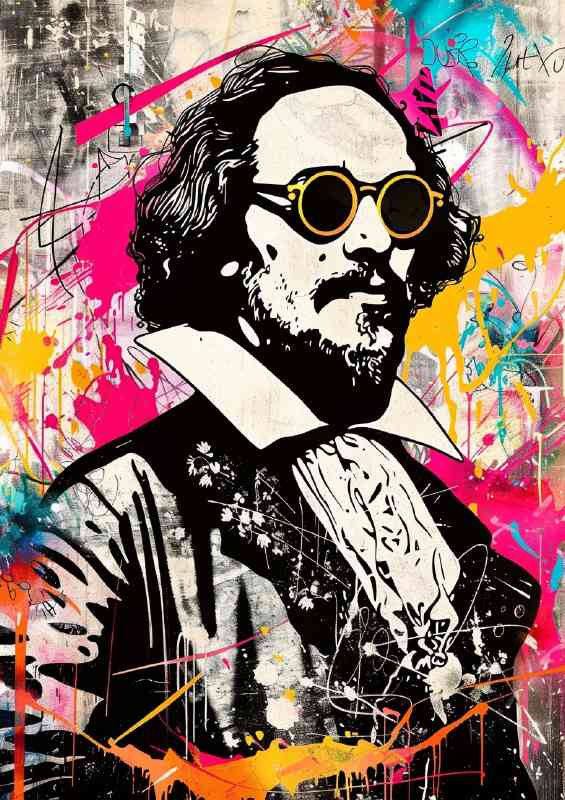 Over the past few weeks, I've had the opportunity to attend a few Shakespearean-related events. On Saturday, July 19, I hosted "A Midwinter Day's Awakening", replete with Shakespearean readings, people in appropriate costume (I quite enjoy the role of being the wizard Prospero), Elizabethan music, and some impressive operatic singing (thank you, Angela L). Several days later, on July 27, Justine M., Simon S., Kate R., and I ventured to the Fairfax at the Arts Centre to see Bell Shakespeare put on their performance of "Coriolanus", a marvellous take of arrogance, betrayal, and vengeance. which has been very well received, which has not been performed outside of the UK since 2000. Peter Carroll provided an especially superb peformance as the elder statesman Menenius and, as one would hope, Hazem Shammas provided a very fine Coriolanus.
Over the past few weeks, I've had the opportunity to attend a few Shakespearean-related events. On Saturday, July 19, I hosted "A Midwinter Day's Awakening", replete with Shakespearean readings, people in appropriate costume (I quite enjoy the role of being the wizard Prospero), Elizabethan music, and some impressive operatic singing (thank you, Angela L). Several days later, on July 27, Justine M., Simon S., Kate R., and I ventured to the Fairfax at the Arts Centre to see Bell Shakespeare put on their performance of "Coriolanus", a marvellous take of arrogance, betrayal, and vengeance. which has been very well received, which has not been performed outside of the UK since 2000. Peter Carroll provided an especially superb peformance as the elder statesman Menenius and, as one would hope, Hazem Shammas provided a very fine Coriolanus.
Continuing on the theme, Kate and I delved into a viewing of Julie Taymor's "Titus", a violent, indulgent, and surreal piece of work with Anthony Hopkins and Alan Cumming being particularly excellent in their performance. Then, a few days later, Martin P., took me out to the Brighton Palace to see a pre-release screening of "Mr. Burton", which involves the days of Richard Burton at the start of his career and his friendship (and eventual adoption) by the teacher, director, and producer, Philip Burton. Strictly not a Shakespeare performance, it makes a multitude of direct references to The Bard, and is very notable for its emotional depth, and portrayal of poverty among the Welsh working-class. Finally, I have Luhrmann's 1996 "Romeo + Juliet" on order to re-watch, notable for its 1990s "crass, violent and superficial" setting, which juxtaposed the contemporary setting with Elizabethan dialogue. Naturally enough, I have taken the opportunity to reread "The Complete Works" (a truly dedicated person should be able to get through this in several days).
Inevitably, because it is in my character, as these events accumulated, I started to ask myself "Why Shakespeare?"